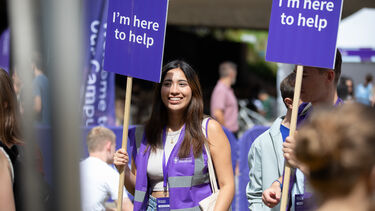Combining practical projects with academic theory led to success for Ben!

Why did you choose to study the field of Electronic and Electrical Engineering and why did you choose to do your specific degree?
In recent times, there has been rapid growth in the research and development of renewable energy sources, electrical vehicles, digital industries and more. This has, and will continue to open up limitless career opportunities for current and future engineers. I chose to study Electrical and Electronic Engineering because I know it will lead to an exciting career where I will be working on technology that will be used to solve some of world’s toughest problems.
What was your journey to studying Engineering?
I knew that engineering was a path that I wanted to take when I started college, so studying A-level Maths, Physics and Electronics put me in a really strong position when I started my degree.
Why did you choose to study at Sheffield?
Beautiful city with lots to do and excellent engineering facilities.
What did you enjoy most about your degree and also your time with us and why?
I enjoyed the extra-curricular student-led engineering projects the most, where I got the chance to apply knowledge learned in the lecture material to develop Mars Rovers and underwater robots, which gave me the opportunity to compete at international competitions.
What are you most proud of achieving whilst at University?
I am most proud of my contributions to Team Avalon, and student-led team of multidisciplinary engineers, tasked with designing, building and testing an underwater remotely operated vehicle (ROV) to compete at the Marine and Technology Education (MATE) competition in the USA.
I was part of the electrical and software teams, where I designed custom circuit boards for the electronics control system, and developed software for the main user interface used to pilot the ROV at the competition.
At the end of the year, to show off our hard work, I got the chance to travel to the USA with the team and compete at the MATE ROV competition against thousands of others students from around the world.
Do you have any advice for students considering coming to EEE? How can they get the most from their time with us?
Get stuck into practical electronics and work on personal hobby projects in your spare time whilst at university, it will open up possibilities such as joining student engineering teams, and ultimately will make you stand out to employers.

Visit us
Discover what sets Sheffield apart at our undergraduate open day on Saturday 5 July 2025.
